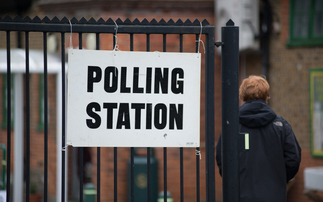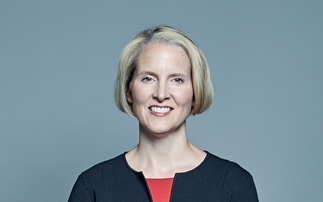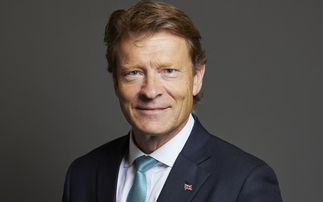Climate Finance Leadership Initiative will seek to raise private capital towards tackling climate change ahead of critical UN summit in September
Leaders of some of the world's largest banks and financial institutions have launched a new joint initiative aimed at rapidly mobilising increased levels of private capital for tackling climate change ahead of a major UN summit this autumn.
Led by Michael Bloomberg, the Climate Finance Leadership Initiative (CFLI) was formally unveiled yesterday. It convenes six influential financial sector CEOs from AXA, HSBC, Macquarie, Goldman Sachs, Enel, and Japan's government pension fund.
Mary Schapiro, Michael Bloomberg's special advisor and vice chair for public policy at Bloomberg LP, will act as vice chair of the CFLI, which will also deliver a report highlighting best practices and opportunities for enhancing climate finance mobilisation.
Set to be published in two phases in July and September, the report will include existing and new climate finance initiatives "that can be scaled up quickly" and seek to identify obstacles to increasing capital flows towards low carbon and climate resilient infrastructure, particularly in emerging economies, the CFLI said.
US billionaire Bloomberg said the initiative would help to bring more capital to the fight against climate change.
"The faster we can accelerate investment in projects that both reduce emissions and create jobs, the more progress we can make reducing the health and economic risks that come with climate change," he said.
Founding members of the CFLI include: AXA CEO Thomas Buberl, HSBC CEO John Flint, Government Pension Investment Fund (Japan) executive MD and CIO Hiro Mizuno, Goldman Sachs CEO David Solomon, Enel CEO Francesco Starace, and Macquarie CEO Shemara Wikramanayake.
The CFLI was formed at the request of UN Secretary-General António Guterres, who earlier this week separately announced plans for a global summit on 23 September aimed at mobilising action on climate change by political leaders, businesses, and civil society. The hope is the New York Summit will see a number of countries ratchet up their national climate action plans under the Paris Agreement before the treaty comes into full effect in 2020.
In his 2019 new year UN address, Guterres highlighted the fight against climate change as a top priority for 2019, and urged the world to show greater ambition on mitigation, adaptation, finance and innovation. "Quite simply, we must put our pedal to the metal," he said. "I appeal to world leaders to bring solutions and commitments that will at last match the scale of the challenge."
There is "no greater challenge to the world of today and tomorrow", he added. "The threat is on a clear trajectory: hotter, faster, more severe. Science is clear. And things are even getting worse than what was forecast… Over the next decade, we need to transform our economies at an unprecedented scale to keep temperature rise to 1.5C. By 2020, under the Paris Agreement, Member States are meant to assess progress and submit new pledges to meet the goals to which they agreed. And by 2050, we need to reach net zero global emissions. That means enhanced efforts now, both to reduce emissions and to seize the opportunities of a clean, green energy future."
The UN chief also called on world leaders and business leaders to "strongly accelerate" efforts towards achieving the 2030 Sustainable Development Goals (SDGs), explaining that the September climate summit would be followed by the UN's first major heads of state and government meeting on the SDGs since they were adopted in 2015.
"Despite considerable efforts from governments and many others, the transformative changes demanded by the 2030 Agenda are not yet being made," said Guterres. "We need a sharper focus on what works in reducing poverty and inequality, and in delivering strong and inclusive economies while safeguarding the environment - and we need increased financing for those solutions."









